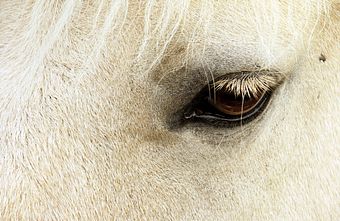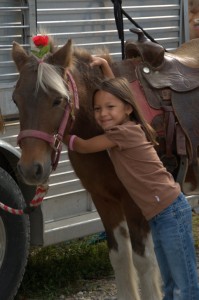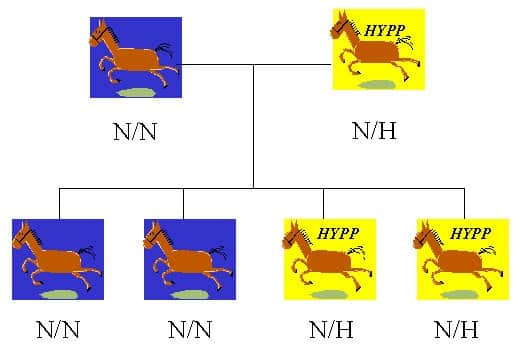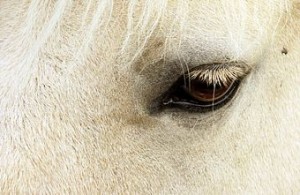 One of the hardest decisions that a horse owner will even have to make is deciding when a horse’s time is over.
One of the hardest decisions that a horse owner will even have to make is deciding when a horse’s time is over.
I want to talk to you about it.
I want to talk to you about it because all too often, I find that people are afraid of their horse’s death, afraid of loss, afraid of what they’re going to have to do, and of the decision that they’re going to have to make. They don’t want their horse to suffer, they don’t want him* to live one minute more if that minute involves suffering, and they don’t want to let him go one minute too soon. And I want you to understand, I get it, and it’ll be OK. You’re going to do the right thing. You’re going to do the right thing by you, and the right thing by your horse.
You have two great gifts that you can give your horse. First, you can give him a wonderful life, full of good food and care, and free of predators, and from exposure to the elements. Second, you can make sure that he never has to endure overwhelming pain and suffering, at least not for long. I’ve written a lot about how to take good care of him – I thought it was time to write about the end.
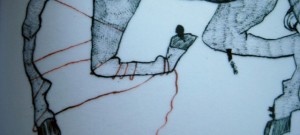 At the end, you may be confronted with a situation where you really don’t have any choice. I had one of those a few weeks back. A beautiful young gelding was out playing, and he playfully jumped up in the air, as horses often do, bringing us a smile in the process. Unfortunately, he came down with his leg through a fence. In trying to get his leg out of the fence, he snapped a bone in his upper arm. And there was nothing to do. No matter how much money was available, it was a fracture that could not have been fixed. The horse had to be put to sleep. It was horrible. It was sad. But there was nothing else to be done. The right thing was obvious; it was a tragedy, and the situation was hopeless. In such circumstances, we cry, we rage, we are sad, we are devastated. But we know the right thing to do.
At the end, you may be confronted with a situation where you really don’t have any choice. I had one of those a few weeks back. A beautiful young gelding was out playing, and he playfully jumped up in the air, as horses often do, bringing us a smile in the process. Unfortunately, he came down with his leg through a fence. In trying to get his leg out of the fence, he snapped a bone in his upper arm. And there was nothing to do. No matter how much money was available, it was a fracture that could not have been fixed. The horse had to be put to sleep. It was horrible. It was sad. But there was nothing else to be done. The right thing was obvious; it was a tragedy, and the situation was hopeless. In such circumstances, we cry, we rage, we are sad, we are devastated. But we know the right thing to do.
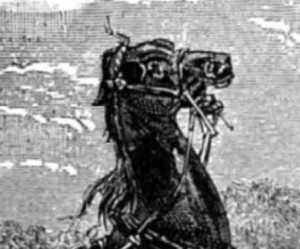 The situation isn’t always that clear cut. Sometimes factors beyond the immediate situation come into play. For example, the cost of care may be too much, or the anticipated outcome may not be good. So, for example, earlier this year I attended a horse that had been given a wonderful home for many years. He was colicking. And it was a bad colic. It was a colic that might have been fixed with a colic surgery. But, sadly, due to economic circumstances, my clients couldn’t afford the surgery. They made a very difficult decision to let their old friend go. It was hard, but it was the right thing for them. They had given him a wonderful life, and they didn’t want him to suffer. And they didn’t want to make themselves suffer, either, by taking on a bill that they couldn’t afford. Again, it was a situation where the right decision was clear – difficult, for sure – but clear. They did the right thing by their horse, and by themselves, too.
The situation isn’t always that clear cut. Sometimes factors beyond the immediate situation come into play. For example, the cost of care may be too much, or the anticipated outcome may not be good. So, for example, earlier this year I attended a horse that had been given a wonderful home for many years. He was colicking. And it was a bad colic. It was a colic that might have been fixed with a colic surgery. But, sadly, due to economic circumstances, my clients couldn’t afford the surgery. They made a very difficult decision to let their old friend go. It was hard, but it was the right thing for them. They had given him a wonderful life, and they didn’t want him to suffer. And they didn’t want to make themselves suffer, either, by taking on a bill that they couldn’t afford. Again, it was a situation where the right decision was clear – difficult, for sure – but clear. They did the right thing by their horse, and by themselves, too.
I think that the third situation is the hardest. It’s the situation where a horse has a chronic problem, or a problem brought on by old age. Maybe he has laminitis that isn’t responding well to treatment; maybe he’s on a downhill slide just because some of his parts are wearing out. Maybe he has bad knees, or maybe his hips are giving out. He’ll have good days, and he’ll have bad days, but the bad days get more frequent, and they get worse. You have to help him up sometimes – and are glad do do so. He’ll have a hard time getting up, or getting around, but he’ll be trying to do his best, because that’s what horses do. They do their best. And we love them for that.
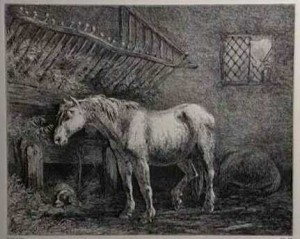 And you’ll worry that one day you’ll come and find him down, in a corner, and unable to get up, or not able to eat. And you’ll worry that you’ll let him go too long, because, really, as much as you don’t want the end to come, you don’t want to let him go too soon.
And you’ll worry that one day you’ll come and find him down, in a corner, and unable to get up, or not able to eat. And you’ll worry that you’ll let him go too long, because, really, as much as you don’t want the end to come, you don’t want to let him go too soon.
And it’ll be OK.
I don’t want to sound glib, or flippant, but it’ll be OK because your love for your horse will overcome your fear of loss. You’ll know. You’ll know when it’s time. You’ll know that as much as you’re thinking of you, and how bad you’re going to feel that it’s more important that you think of your good friend. It will be a moment of clarity, of great sadness – even despair – but ultimately, one of peace. And even though it will be a sad moment, and a terrible moment, it will be a moment that you’ll understand, because as much as you wish it could be otherwise, life does come to an end, and you know that. And because of that, the right time, and the right decision will come to you. I promise.
But it will be hard. It will be hard because all of the love and caring that you’ve given. And the joy from all of the adventures and competitions and shows and parades that you’ve shared – joy and love and caring that took years and years to build up – will come rushing out all at once. And you’ll feel like someone hit your heart with an anvil, and you’ll feel like you can’t even think of seeing another horse, and you probably won’t sleep very well for a good little bit.
But soon, you will start to remember how lucky you both were. And you’ll find some pictures. And you’ll start to want to share joys and fun and adventures and love and caring with another lucky horse. And, hopefully, you will. For both of you.
It’ll be OK. You’ll do the right thing. I promise.
**************************************************************************************************************************************
* Many of you have wonderful mares. For ease of reading, and typing, I’m not going to say, “Him or Her.” I’m also not going to say, “It,” because that word fails to convey any feeling. Thanks for understanding.

